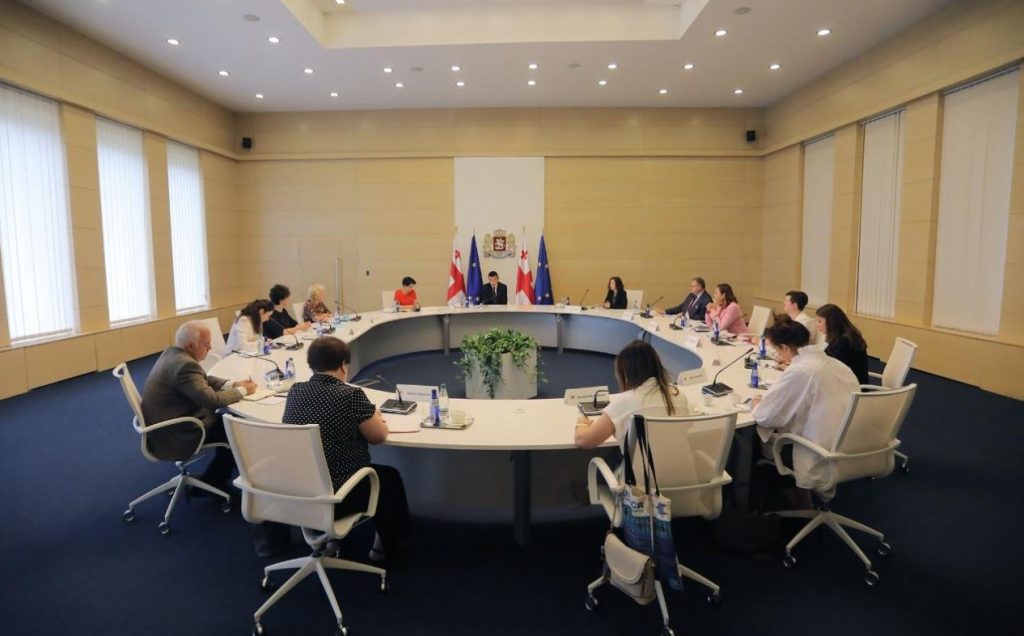
The Government of Georgia has launched a large-scale study on the management of COVID-19 and the impact of the pandemic with the help of international partners.
According to Press Service of the Government Administration, Georgian Prime Minister Giorgi Gakharia met with the development partners together with Natia Mezvrishvili, head of the Administration of the Government. Internal consultations on the details of the study, which were held with them, have already been concluded.
According to the head of the government, it is especially important to assess and analyze the measures implemented by the government in the fight against the pandemic, including with regard to identifying and understanding flaws in order to ensure that the country’s institutions can deal with similar potential crises more effectively in the future.
The independent study will analyze the impact of the crisis on social, human rights, and legal issues, as well as the stability of state institutions. The actions of the government in the process of managing the state of emergency and the pandemic, the existing challenges, and the impact of COVID-19 on the vulnerable population of Georgia will be assessed. Recommendations will also be developed within the framework of the study to ensure that state institutions are better prepared in the event of recurring crises.
The Prime Minister expressed special thanks to all international partners involved in the development of the study for their interest and active cooperation.
“The study encompasses important issues such as crisis management, the analysis of the legal framework during the pandemic, and human rights, which are critically important. Our goal is to identify the challenges that we encountered in this process despite the achieved success and to deal with the possible next wave, as well as similar future crises, even more effectively,” Natia Mezvrishvili, head of the Administration of the Government, stated after the meeting.
Louisa Vinton, the resident representative of the United Nations Development Program (UNDP) in Georgia, welcomed the steps taken by the Government of Georgia in response to the pandemic.
“On behalf of the United Nations Development Program, it really gives me great pleasure to salute and commend the Government of Georgia on its response to the pandemic. I think anyone who looks at the numbers and compares them across the region, globally, can see that Georgia stands out as a real success story. In light of that, UNDP and, as you heard, the other UN agencies and USAID are very keen to be involved in this study that will look at how Georgia did it, did it well, but also what might have been done better,” Louise Vinton noted.
For the Office of the United Nations High Commissioner for Human Rights, the most important aspects of the government’s response in the study pertain to the issues of the protection of human rights during the pandemic and the declaration of the state of emergency.
“What we will be looking at, and what I think is important to also look at respectively for the future, is to look at the issue of whether the measures that have been undertaken have been proportional. We already recognize the welcome step that in the declaration of the state of emergency, the freedom of expression and the media were explicitly left out of any kind of constraints, and that was much appreciated,” Vladimir Shkolnikov, senior adviser for South Caucasus of the Office of the United Nations High Commissioner for Human Rights stated.
According to the head of the UN Population Fund, the study on the management of COVID-19 and the impact of the pandemic is an important opportunity for the country to improve its preparedness for pandemics and to further accelerate the social and economic development of the country.
“For us, as the United Nations Population Fund, it is very important that the study will focus on vulnerable groups, groups whose situation may not have been well studied in terms of social and economic rights, such as the elderly, young people, and especially vulnerable groups of young people, such as young people with disabilities, young people from ethnic minority groups, and so on. Sustainable development is impossible without overcoming inequality and, in this regard, we look at this study in much broader terms and think that it will have far-reaching results,” Lela Bakradze noted.
The study, which also provides an assessment of crisis management, the legal system, and human rights protection systems under conditions of the pandemic, will be conducted jointly by eight UN agencies and the United States Agency for International Development (USAID).








